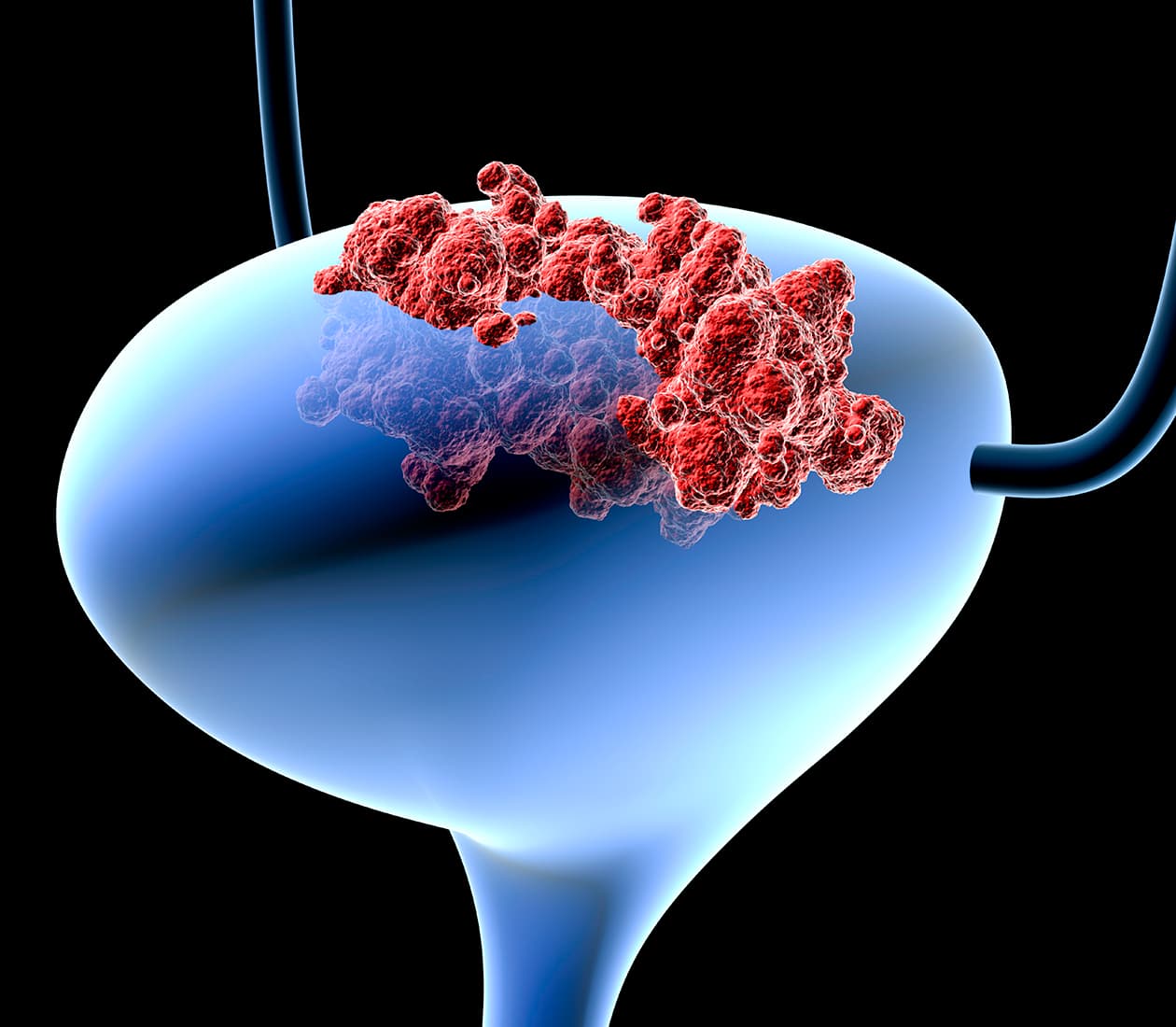
The Bladder and Urothelial Cancer Program provides advanced diagnosis and treatment options for people diagnosed with bladder and urothelial cancer.
The Bladder and Urothelial Cancer Program at Cleveland Clinic Abu Dhabi’s Cancer Institute provides specialized care and support for people diagnosed with bladder and urothelial cancer, close to home.
We take a multidisciplinary approach to cancer, and our expert team of oncologists, surgeons, radiologists and pathologists work together to provide every patient with the most compassionate and personalized care. We explore all possible medical and surgical options, to ensure the best possible outcome.

Our multidisciplinary team has unique experience in managing bladder cancers, working together to provide every patient with a customized treatment plan. When needed, we draw on the experience of physicians from other departments, working together to diagnose your condition and meeting regularly as a Tumor Board to ensure the most appropriate decisions about your treatment.
After treatment, our ongoing care ensures any side effects are managed and minimized, while protecting bladder function and optimizing quality of life.

The bladder is the organ that holds our urine before it leaves our body, via the urethra.
There are different types of bladder cancer, all of which are treated at the Bladder and Urothelial Cancer Program. Each is named after the type of cell that the cancer originates in (all within the bladder wall):
Urothelial carcinoma: More than 90% of bladder cancers begin in the transitional cells, which lie in the innermost lining of the bladder wall. The cancer invades into the deeper layers of the bladder, the layer of thick muscle in the bladder, or through the bladder wall into surrounding tissues.
Squamous cell carcinoma: These are the cells that line the urethra and cancer can form after long periods of bladder inflammation or irritation.
Adenocarcinoma: A rare type of bladder cancer, which begins in glandular cells within the lining of the bladder.

Symptoms of bladder cancer are often similar to symptoms of other conditions. These include:
Always talk to your doctor if you experience any of these symptoms. These symptoms might not always mean you have cancer.
Smoking is known to be a direct cause of bladder cancer.
There are certain factors that might put you at an increased risk of bladder cancer. Many factors cannot be controlled, but some lifestyle choices such as smoking and diet, can be addressed and lower your risk. In general, risk factors for bladder cancer include:

If your doctor suspects that you have bladder cancer, they will test your urine to rule out an infection.
An examination, called cystoscopy, is then performed to look for cancer cells. A very thin telescope (cystoscope) is inserted into your bladder. Under anesthesia, tissue samples (biopsy) are taken and examined under a microscope.
If a bladder cancer diagnosis is made, the tumor is removed for detailed diagnosis and staging via a procedure called transurethral resection (TURBT). Under general anesthesia, the tumor is removed via the use of a type of cystoscope (resectoscope) inserted into the bladder through the urethra. TURBT is a diagnostic and therapeutic procedure.
If the cancer is invasive, a CT scan or MRI of the abdomen and pelvis might also be required to determine if the disease has spread outside of the bladder.
Treatment options don’t always include removing the bladder, and through many of the treatment options below, the bladder can be preserved. Treatment for bladder cancer may include:
Your doctor will discuss all treatment options with you in detail, as well as possible side effects, to ensure you make the best decision for you.

Doctors are still unsure how to prevent bladder cancer, but they do know that smoking is the biggest risk factor.
Being aware of the symptoms of bladder cancer and the known risk factors, may be helpful.
In general, not smoking, following a healthy lifestyle, eating a balanced diet and taking regular exercise can reduce your chances of developing many types of cancer.
Working in industries that use certain chemicals may increase the risk of bladder cancer. These include rubber, leather, printing materials, textiles, dyes and paint.
For men over 40, routine visits to a urologist should be a part of your health routine, to ensure the health of your bladder, prostate and sexual health, and to help detect early signs of things like prostate cancer.

The Bladder and Urothelial Cancer Program at Cleveland Clinic Abu Dhabi consists of a multidisciplinary team of caregivers, including:

Speak with our Contact Center for assistance
Request an Appointment 800 8 2223 International Patients